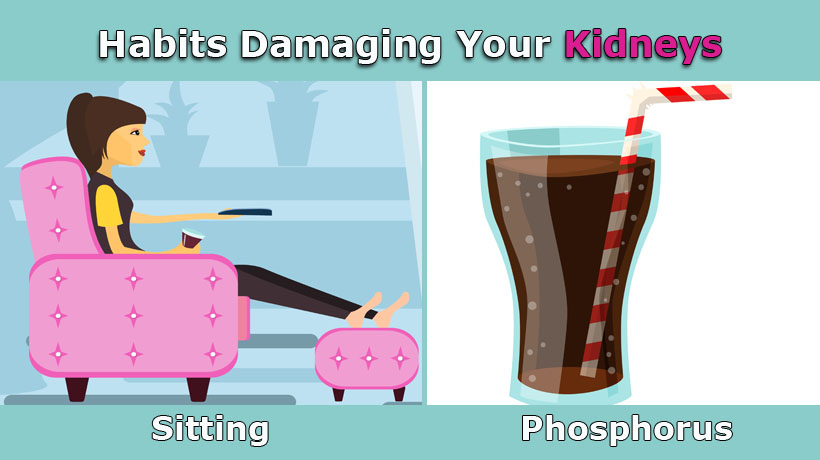There are several harmful habits that can actually put your kidneys to risk. According to the American Kidney Fund, kidney disease is the ninth leading cause of death in the United States. An estimated 31 million people in the United States (10 percent of the adult population) have chronic kidney disease (CKD). Diabetes and high blood pressure are the two leading causes of kidney failure. What are the habits that do lead to kidney failure?
Not drinking enough water
Staying well hydrated helps your kidneys clear sodium and toxins from the body, states the National Kidney Foundation. Drinking plenty of water is one of the best ways to avoid painful kidney stones. Those with kidney problems or kidney failure may need to restrict their fluid intake, but for most people, drinking 1.5 to 2 liters (3 to 4 pints) of water per day is a healthy target.
Eating too many foods high in sugar
The kidneys play an important role in filtering your blood sugar, states WebMD. Once blood sugar levels reach a certain amount, the kidneys start to let excess sugar into your urine. If left uncontrolled, diabetes can damage the kidneys, which prevents them from doing their job in filtering out waste in your blood. This can lead to kidney failure.
Drinking excess alcohol
Kidney stones may form due to alcohol-induced dehydration, according to Healthline. Drinking alcohol if you already have kidney stones may cause them to move quickly. This can contribute to and increase kidney pain. You may be able to treat small kidney stones by increasing your water intake, taking medication, or using home remedies.
A kidney infection is a type of urinary tract infection (UTI) that starts in the urethra or bladder and moves to one or both kidneys. The symptoms and severity of a UTI may get worse after drinking alcohol.
Eating processed food
Processed foods are significant sources of sodium and phosphorus, according to the National Kidney Foundation. Normal working kidneys can remove extra phosphorus in your blood. When you have chronic kidney disease (CKD), your kidneys cannot remove phosphorus very well. High phosphorus levels can cause damage to your body. Extra phosphorus causes body changes that pull calcium out of your bones, making them weak. High phosphorus and calcium levels also lead to dangerous calcium deposits in blood vessels, lungs, eyes, and heart. Phosphorus and calcium control are very important for your overall health.
Sleep
A good night’s rest is extremely important to your overall well-being, according to the National Kidney Foundation. Ciaran McMullan, MD, of Brigham and Women’s Hospital is studying how sleep impacts the kidneys and whether more sleep and melatonin supplementation can improve kidney function.
According to Dr. McMullan, “Kidney function is actually regulated by the sleep-wake cycle. It helps coordinate the kidneys’ workload over 24 hours. We also know that nocturnal patterns can affect chronic kidney disease and that people who sleep less usually have faster kidney function decline.”
Sitting still
New research finds that sitting for long stretches may also raise the risk for chronic kidney disease, especially in women, according to WebMD. Women in the study who reported less than three hours a day of total sitting time were 30% less likely to develop chronic kidney disease than those who reported spending more than eight hours a day in their chairs. Prolonged sitting also appeared to be linked to increased risk for kidney disease in men, but to a lesser degree. Regular physical activity, such as walking for 30 minutes a day, was associated with a reduced risk for developing kidney disease in men, but not in women.
Sources:
https://www.kidney.org/atoz/content/phosphorus
https://www.kidney.org/content/10-common-habits-that-may-harm-your-kidneys
https://www.webmd.com/diabetes/features/how-sugar-affects-your-body
https://www.healthline.com/health/kidney-pain-alcohol#causes
https://www.kidney.org/professionals/studying-sleeps-impact-kidney-health
http://www.kidneyfund.org/assets/pdf/kidney-disease-statistics.pdf



